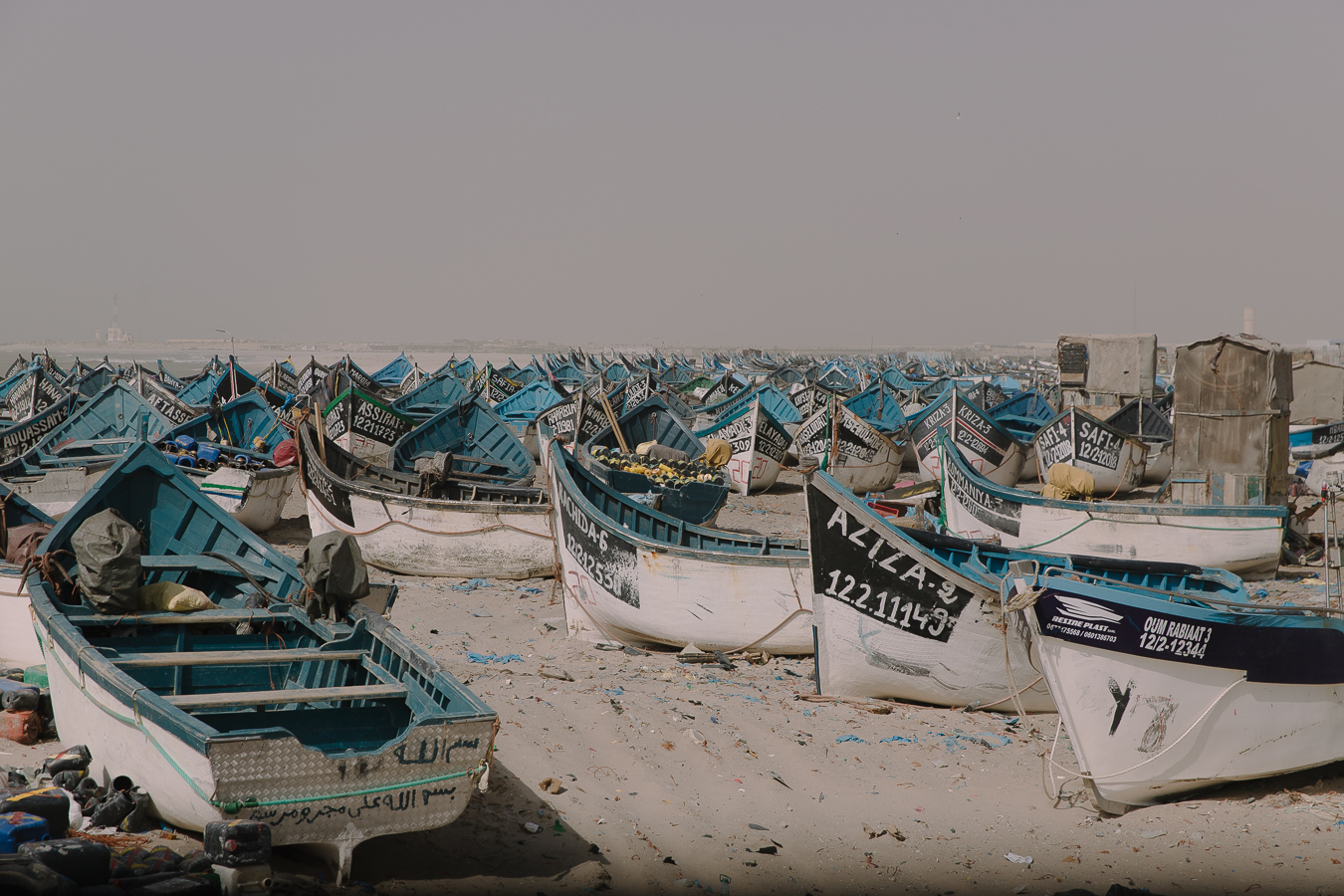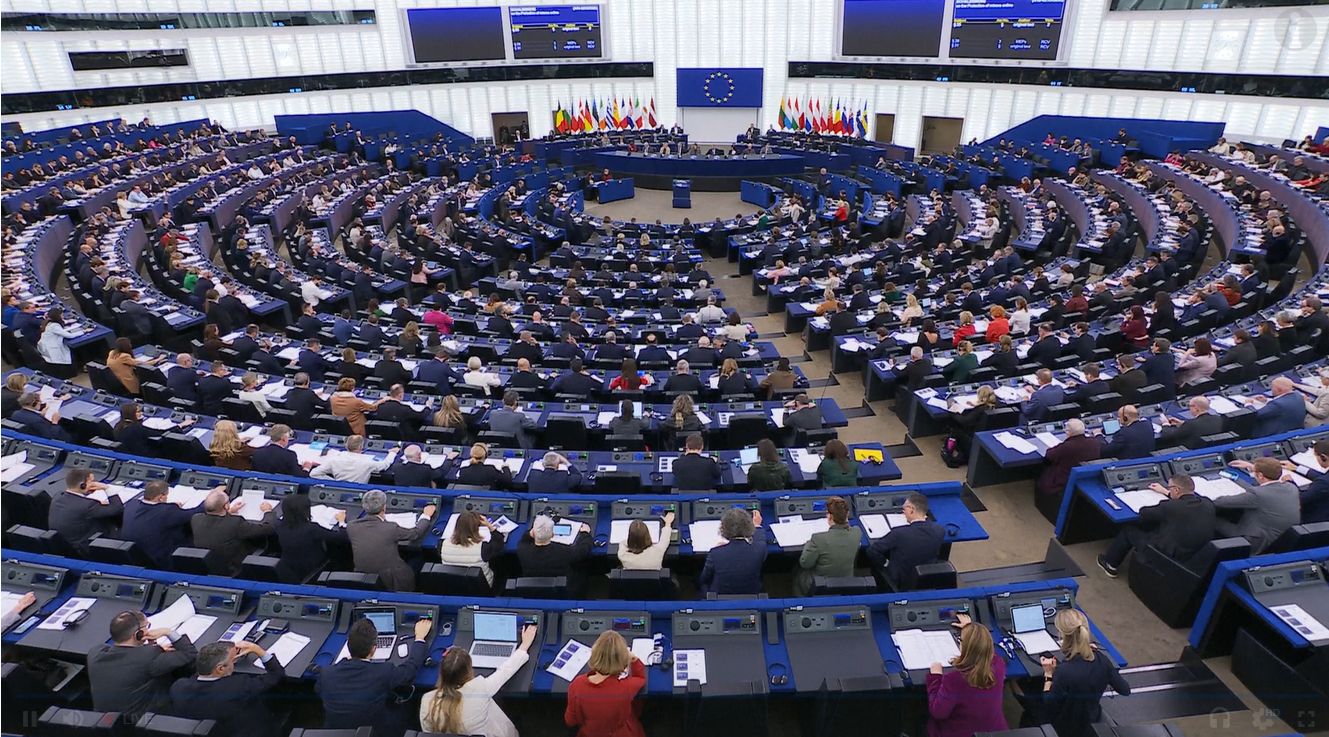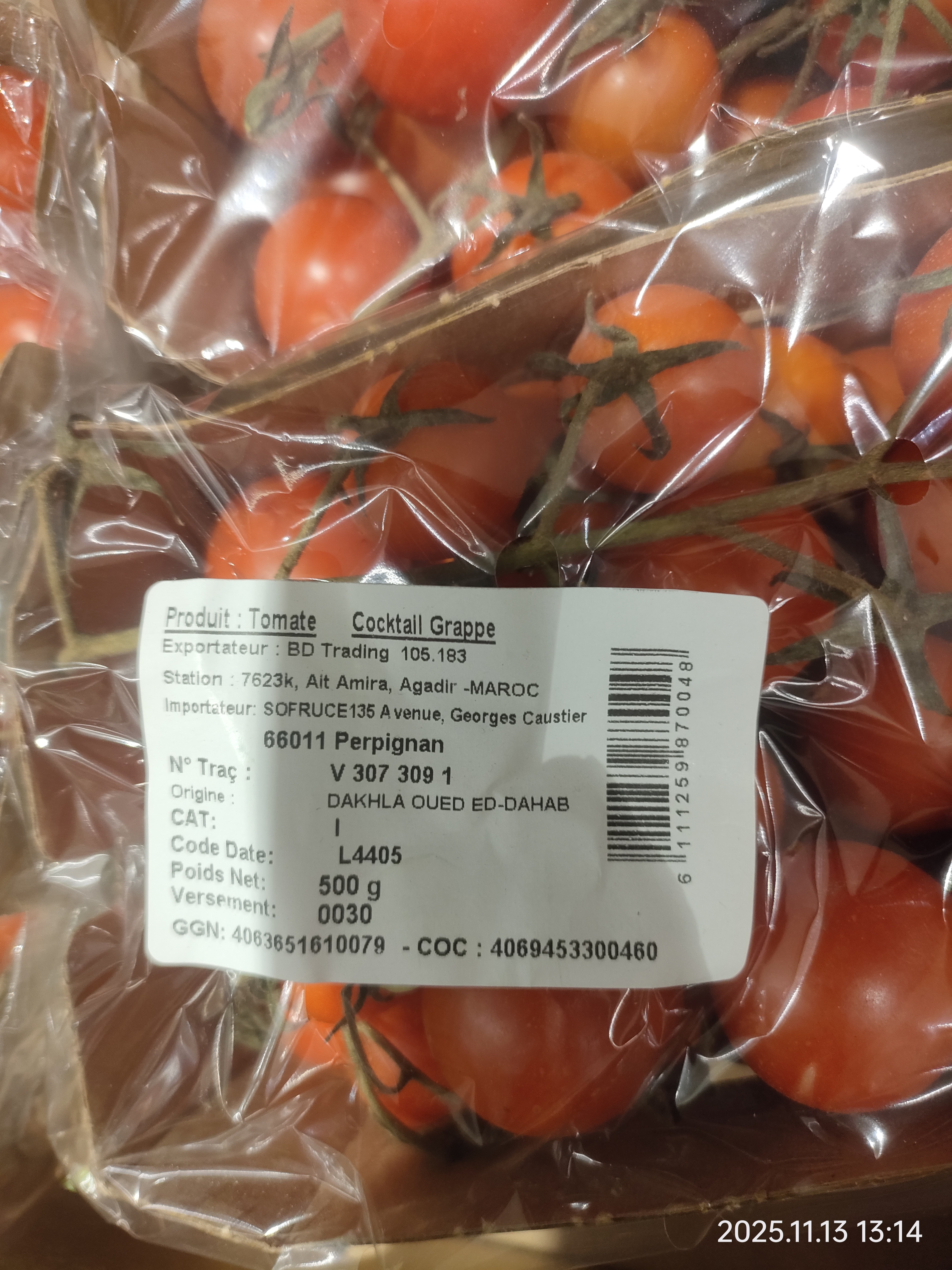
Nearly a year after the EU Court struck down the EU-Morocco trade agreement for including occupied Western Sahara, Brussels appears ready to test the limits of international law once again.
The Moroccan fisheries fleet in occupied Western Sahara is supplying the EU market with fisheries products. These artisanal fishermen in Dakhla are nearly all from Morocco. Photo: @Maria Klenner
According to a document dated 20 August 2025 from the Danish government, which currently is holding the EU Council Presidency, the EU Commission is seeking a mandate to open trade talks with Morocco, with the explicit aim of continuing imports from occupied Western Sahara.
“The Commission’s proposal to open negotiations with Morocco aims to bring the agreement into compliance with the CJEU ruling, EU law, and international law, while preserving existing trade relations and thus allowing continued imports of products from Western Sahara at the same preferential tariff rates as those applicable to Morocco”, the document reads.
The development is controversial, mildly speaking. This autumn, 50 years will have passed since Morocco’s unprovoked, unjustified and illegal military invasion of the territory of Western Sahara.
The proposal envisages the introduction of a monitoring mechanism to “continuously verify” that the Saharawi people receive “benefits” from the EU-Moroccan trade on their occupied land.
The Danish document reveals that the EU Commission has asked the Council of the European Union for a mandate to renegotiate the EU’s trade agreement with Morocco in late July.
The request from the Commission thus comes nearly 10 months after the Court of Justice of the European Union (CJEU), in three landmark rulings on 4 October 2024, annulled the EU’s trade and fisheries agreements with Morocco in their application to Western Sahara. The Court once again underlined that Western Sahara is a “separate and distinct” territory from Morocco under EU law, and that any agreement with Morocco can only apply there with the consent of the Saharawi people, as the holders of the right to self-determination.
The October 2024 rulings are the latest in a series of now 10 judgments in which the Court has consistently held that EU-Morocco agreements cannot be applied to Western Sahara without the consent of the people of that territory. See the timeline of the EU-Morocco legal cases below.
While the latest rulings stressed that express consent is the ideal, it recognised the possibility of presumed consent, but only under strict conditions: the agreement must not create obligations for the people - and not the population - of Western Sahara, and they must receive tangible, substantial, verifiable benefits proportional to the scale of resource use.
It is through this notion of presumed consent that the EU Commission seeks to approach a new trade framework for the territory, through Morocco.
Importantly, the Court observed that most Saharawis live in exile, and that only around 25% of the population currently residing in Western Sahara is Saharawi. Consequently, any benefits must reach Saharawis still living in the territory, but also those who have been forced to flee it.
“Any trade talks or any monitoring mechanism can only be credible if ensuring the full participation of the Polisario Front, recognised by the EU Court as representing the Saharawi people and with standing before the Court to defend their right to self-determination,” said Sara Eyckmans of Western Sahara Resource Watch. “Without Polisario’s involvement, such mechanisms and talks are bypassing the very people whose rights are at stake, and would fall short of the EU’s obligation to respect self-determination. We call on EU Member States to reject any proposal from the Commission that weaponises the notion of “presumed consent” to bypass the Saharawi people’s right to self-determination. The EU should defend international law and not reward the worst violations of the international legal order”, Eyckmans stated.
Four weeks ago, WSRW reported that EU and Moroccan trade representatives were exploring ways to sidestep the Court’s rulings on Western Sahara. Proposals under discussion included mechanisms to claim that the Saharawi people were benefiting from EU–Morocco trade, while avoiding the requirement to obtain their consent. The Commission’s new mandate request appears to build directly on those ideas.
In addition to proposing a mechanism to monitor purported benefits to the Saharawi people from applying the EU–Morocco trade deal to their land, the Commission’s draft mandate also foresees provisions on labelling products from Western Sahara as such. This follows a separate CJEU ruling of October 2024, which took immediate effect, concluding that goods from the territory cannot be marked as “from Morocco” but must be labelled as originating from Western Sahara.
The Committee of Permanent Representatives (COREPER) is expected to discuss the Commission’s request on 10 September.
In a statement to Reuters in June this year, the EU Commission’s spokesperson for Foreign Affairs and Security clarified that trading with stolen agricultural goods from an occupied territory would “provide the basis for future restrictive measures”. But that was in relation to Ukraine - where the EU has a position of objecting to the brutal occupation, not supporting it, as it does in Western Sahara.
Since you're here....
WSRW’s work is being read and used more than ever. We work totally independently and to a large extent voluntarily. Our work takes time, dedication and diligence. But we do it because we believe it matters – and we hope you do too. We look for more monthly donors to support our work. If you'd like to contribute to our work – 3€, 5€, 8€ monthly… what you can spare – the future of WSRW would be much more secure. You can set up a monthly donation to WSRW quickly here.
These are the MEPs who voted for ignoring the CJEU
187 Parliamentarians voted to ignore the ruling of the CJEU, the interests of EU farmers, the rights of the EU consumers and the aspirations of the Saharawi people. Here they are.
Parliament nearly blocks Morocco’s labelling grab
EU lawmakers today had a golden opportunity to stand up for European consumers. Backed by a solid majority, the Parliament came close to overturning the Commission.
Farmers block Azura warehouse in France and launch legal action
Growing pressure on EU–Morocco trade deal as French farmers today launch legal steps and storm Azura’s entry point for Western Sahara produce in Perpignan.
EU’s labelling chaos already hitting supermarkets
A packet of cherry tomatoes sold this week in a French supermarket illustrates the confusion triggered by the European Commission’s rushed attempt to adapt EU consumer and trade rules to Morocco’s claims over occupied Western Sahara.



